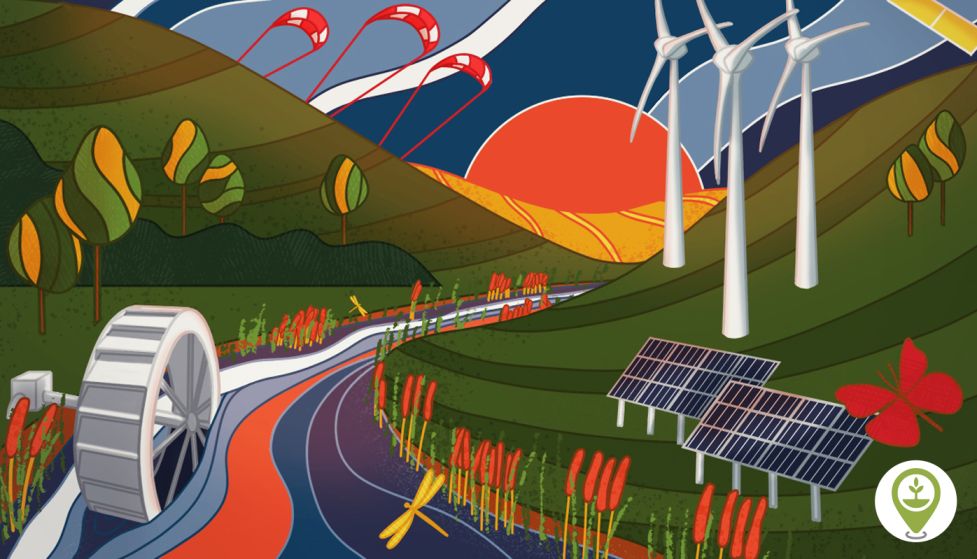Green technology is a subset of technologies regarded as ecologically benign depending on its manufacture technique or supply chain. An acronym for "green technology," "green tech" can also refer to technologies less detrimental to the environment than fossil fuels, alternative fuels, and renewable energy generation.
Though the market for green technology is still new, growing knowledge of the effects of climate change and resource depletion has attracted a lot of investment interest.
Knowing Green Technology
The application of technology and research to produce environmentally friendly goods and services is referred to generally as "green technology."Cleantech, which more especially refers to goods or services that simultaneously lower prices, energy consumption, waste, or negative environmental consequences while also improving operational effectiveness, is connected to green technology.
Green technology seeks to preserve the natural resources of the Earth, heal past environmental damage, and safeguard the environment going forward. Another growing sector with significant investment money drawn by green technology is technology.
Using green technology can be a declared objective of a corporation or a section of business. Usually included in the environmental, sustainability, and governance (ESG) statement of a corporation, these objectives can also be contained in the mission statement of a company. Socially conscious investors are seeking to limit their possible choices to only include businesses especially using or manufacturing green technology.
Read also: 6 Ways Green Energy Storage Technology is Changing
The History of Green Technology
Although green technology is becoming more and more popular in the present day, components of these corporate strategies have been there since the Industrial Revolution. Early in the 19th century, researchers started to track the effects of coal-burning industrial facilities on the ecology; firms have worked to lower their negative environmental externalities by changing manufacturing methods to generate less soot or waste byproducts.
Among the most significant turning points in the United States was World War II. More than 400,000 volunteers started gathering metal, paper, rubber, and other supplies for the war effort in order to decrease consumption and waste.
Scientists such as Rachel Carson started alerting people about the effects of chemical pesticides following the war, while physicians working overseas noted unexplained diseases connected to nuclear radiation.345
Government agencies started to understand gradually the need of preserving environmental resources. Over the next decades, curbside recycling systems proliferated and residential garbage gained attention. Established in 1970, the Environmental Protection Agency created regulations for coal scrubbers and other clean technology as well as strict standards on waste and pollution.
Several forms of green technology
Green technology is a general term for numerous kinds of environmental correction. Although carbon emissions and climate change are currently regarded as the most urgent worldwide problems, local environmental concerns are now under great attention. Some try to safeguard certain habitats or threatened species. Others look for more sustainable substitutes in order to help to save limited natural resources.
Read also: What Is A Smart Grid, And How Does
Other energy sources
Many companies are attempting to create new sources of energy free of atmospheric carbon in order to offer a workable substitute for fossil fuels. Now among the most reasonably priced forms of energy are solar and wind power; at a consumer level, solar panels are reasonably priced for American households.78 Other options, including tidal and geothermal energy, have not yet been put to use on a large scale.
Electric cars
The Environmental Protection Agency estimates that transportation activities account for over a third of U.S. greenhouse gas emissions.9Many producers are looking at ways to lower car emissions, either by switching to electrical power or building more fuel-efficient engines.
But electric cars call on a lot of other advancements in other fields, like charging infrastructure and highly capacity rechargeable batteries. Moreover, the fact that many power systems still run on fossil fuels limits the advantages of electric cars.
Organic farming
From the great expenses of land and water use to the ecological effects of pesticides, fertilizers, and animal waste, farming and cattle have a significant environmental impact. Consequently, the field of agriculture has lots of chances for green technologies. Organic agricultural methods, for instance, can lower the harm caused by soil depletion; improvements in cow feed can lower methane emissions; and meat alternatives can help to lower the consumption of animals.
Read also: How Greentech Building Technology
Waste recycling
Recycling finds sustainable alternatives or reuses of limited resources to help to conserve them. Although plastic, glass, paper, and metal trash are the most common recyclables, more complex processes may be utilized to recover valuable raw materials from e-waste or vehicle components.

